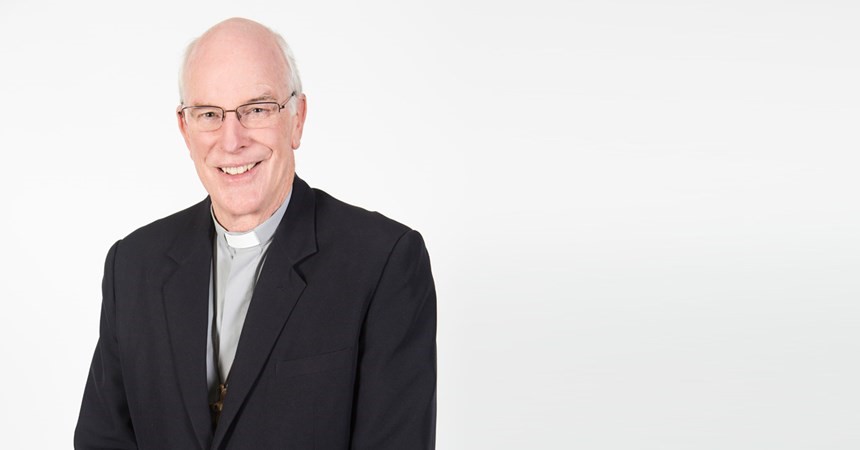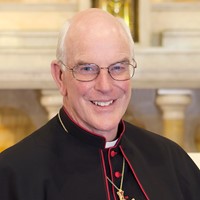There’s a sad edge to the Nigerians’ thankfulness to see visitors. They do live with a feeling of being somewhat forgotten and abandoned. It goes with a consciousness that their country is an economic and political mess – not a disaster, but a mess - unattractive to European and US investors. The Chinese are filling the gap, as they are all over Africa, but the Nigerians genuinely aspire to being a progressive, democratic society. They’d much rather deal with the West, but the West isn’t interested in Nigerian progress, only in their oil.
Anyway, you don’t see white faces, even at the airports. A non-African visitor is an event. A bishop is a double event. To be honest, it’s a bit of a strain to live up to the role. Very occasionally in Australia I am still called ‘My Lord’. In Nigeria, it’s in every sentence, and accompanied by ring-kissing. I’d like to relax a bit, dress down, shake hands, do the ‘Call me Bill’ thing, but my clerical minders won’t have it. ‘The people expect…..’, and so on. It is a very clerical church, in a very religious nation.
Just how pervasive religion is has to be seen to be believed. In Ibadan, the city where I ordained the four young Vocationists to the priesthood, I joke that every third building is a church. It’s an exaggeration, of course, but not by too much. Several times I counted three or four ‘churches’ in a row.
For the most part, the ‘Apostolic Family Church’, ‘Bethel Assembly ’and ‘Happy Day Jesus Church’ buildings are gerry-built concrete block shacks, but some of them are quite flash. These latter have big signs showing their smiling pastor and advertising the up-coming big event. Anyway, large or small, there’s hundreds and hundreds of them. And then there’s the dozen or so religious ‘universities’ on the highway out of Lagos and the nearby ‘praise and worship’ camp-sites. The conventional places of worship, Catholic, Protestant or Islamic, aren’t so numerous, but they are some of the biggest and best buildings/compounds besides government offices.
Faith and nationhood go very much together. At the end of every Mass there are prayers for vocations – which one might think hardly necessary in Nigeria, but perhaps it’s why there are so many – and prayers for Nigeria that very frankly seek an end of corruption and violence. Inversely, the politicians and public servants I met all told me that Nigeria will be OK in the long run because the people have faith in God, one way or another. They only have to hold back foreign, militant Islam and overcome corruption.
Political corruption is the news in Nigeria. I was there only a few days, but in that time we managed to have one vote to impeach an entire provincial cabinet, a high court judge refusing to swear in a deputy premier on ‘fit and proper person’ grounds and the President himself changing his party allegiance.
There’s general acceptance that the last presidential election was rigged, but they’ve had worse presidents and it’s a step up on military rule. Massive population growth has outrun the school system, however, and declining educational standards threaten long-term liberal democracy. People accordingly worry that the president is a ‘populist’ in the manner of Trump et al, and that this might be the way of the future.
So, Nigeria and Nigerians: warm, welcoming, proud, devout, struggling, confident, anxious, faith-filled, wonderful hosts. They are also either the worst or the best drivers in the world, because every second on the road threatens disaster but the calamity is almost always avoided, albeit by millimetres. Hopefully that’s an image of how they’ll negotiate their other challenges.























































































